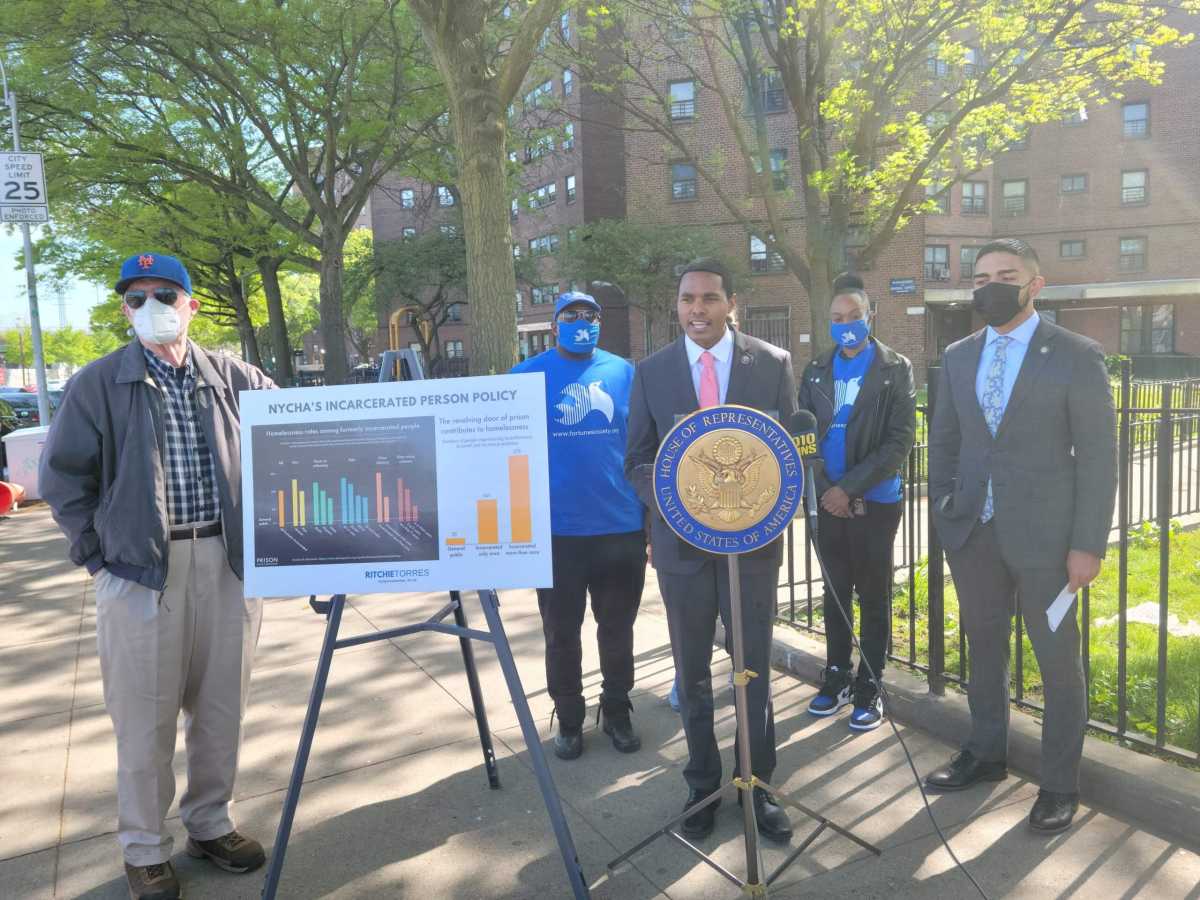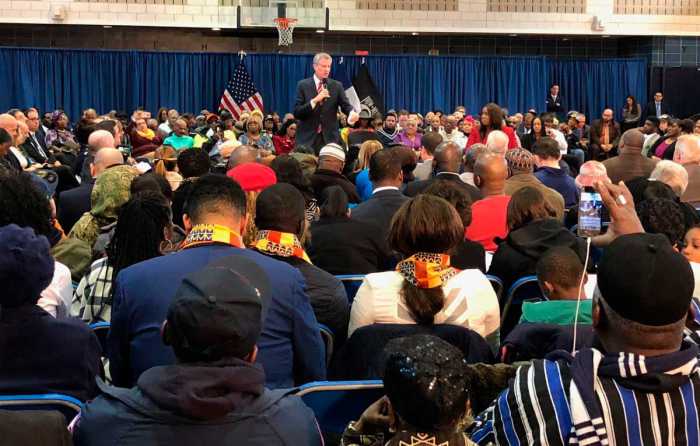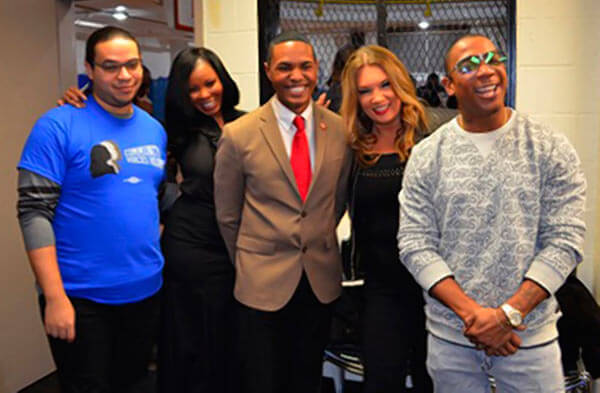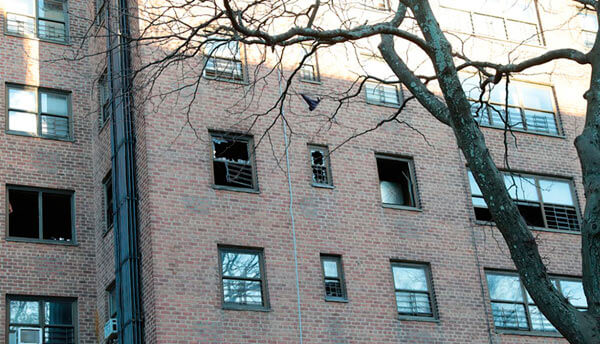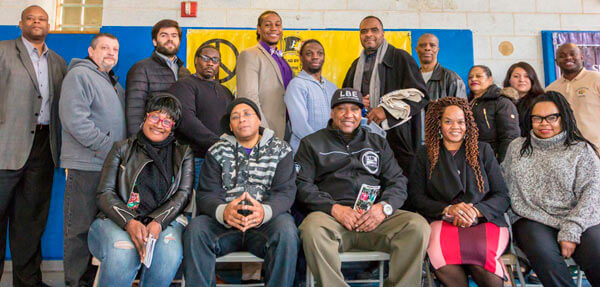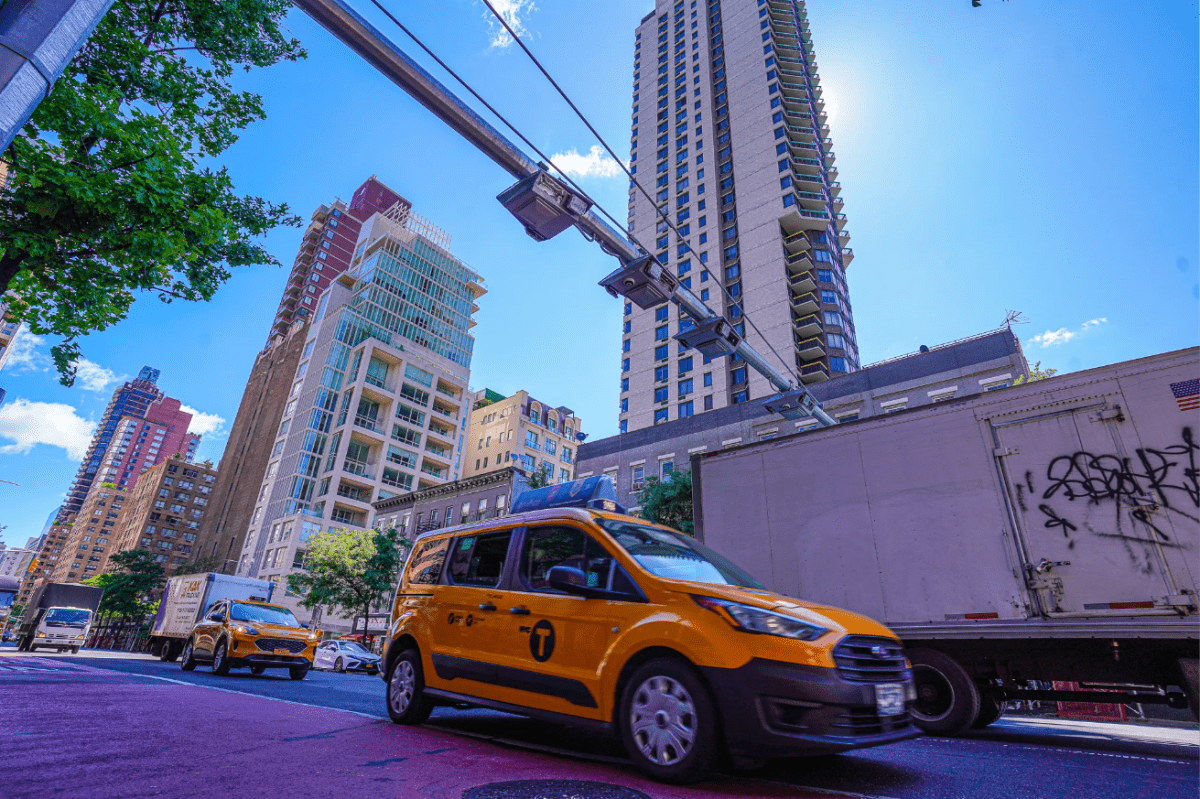A group of local elected officials are blasting the New York City Housing Authority for allegedly discriminating against the formerly incarcerated.
Bronx Congressman Ritchie Torres and Assemblyman Kenny Burgos gathered to announce on May 7 new state legislation that would insure formerly imprisoned individuals have access to public housing — which everyone but sex offenders technically already have, but are routinely denied anyway.
The bill would also relieve families living in public housing of risking their own housing situation if they welcome a formerly incarcerated family member into their home.
“When it comes to reentry NYCHA may be the worst landlord,” Torres said. “NYCHA has the tools to do the right things, what it’s lacking is the will power.”
For Torres, this matter is personal. As a child, he had a family member who was in prison for a long time. He recalled that upon visiting him he asked what will he do when he is out?
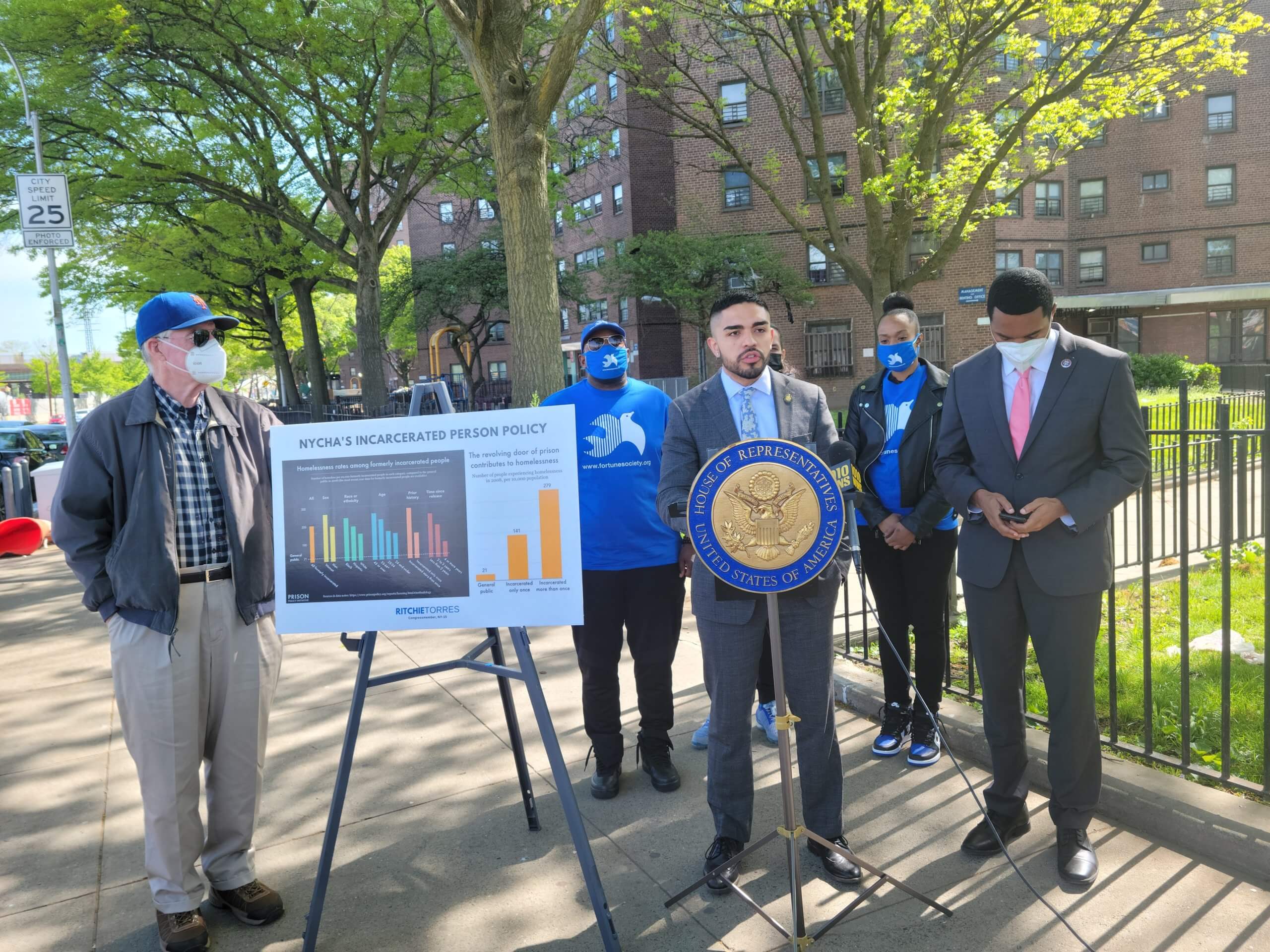
“If I cannot go back to school, If I cannot find a job, if I cannot go back home, then I’ simply going to go back to the same life had before for survival,” the family member said. “I never forgot those words. I’m sad to report today our society is almost as punitive today as it was almost 18 years ago.”
Torres stressed that if people like this had an option to live in NYCHA then maybe they wouldn’t reoffend and or end up homeless. In fact, anyone with a criminal record cannot even visit someone in a NYCHA residence.
He explained that outdated policies like this must be repealed. How can someone be expected to restart their life if they can’t even find housing?
According to Torres, formerly incarcerated people are 10 times more likely to be homeless and make up 25 percent of the NYC shelter system.
“NYCHA’s policy of discriminating against anyone with a criminal history is cruel and unusual,” he stressed. “When you deny people housing, when you deny people reunification with their families, you are setting them up to fail. Everyone deserves a fair fighting chance at rebuilding their lives.”
Among the thousands that have been affected by the discrimination of NYCHA is Christina Johnson. Johnson, 25, is a single mom, who is formerly incarcerated.
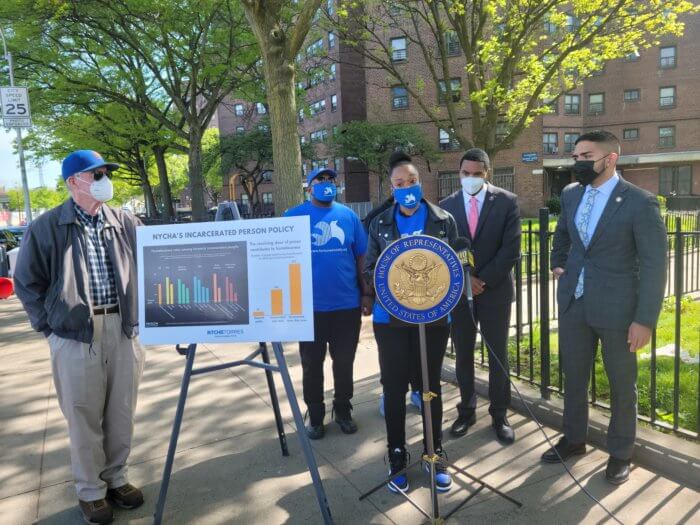
For a few years she applied for NYCHA and finally last summer was notified she would be getting an apartment.
“I can’t begin to tell you how excited I was,” she recalled.
She visited her future home, gave a deposit and was on cloud nine. But things then took a sharp turn.
Johnson then saw online that her status for housing was deemed ineligible. She went to management who handed her money back and told there was nothing that could be done.
“Why was this happening?” Johnson said as tears rolled down her face.
NYCHA officials said they made a mistake in her background check. She was now red flagged in the system, could not apply for six years and had no grounds for an appeal.
“I cried all day and night,” she said.
Thankfully, Johnson received help and got an apartment. Today, she works for the nonprofit Fortune Society.
“I’m a lucky one,” she stated. “No one should have to go through that.”

